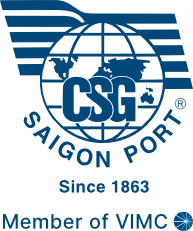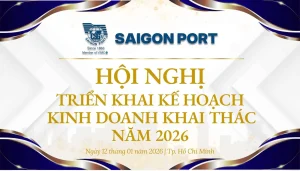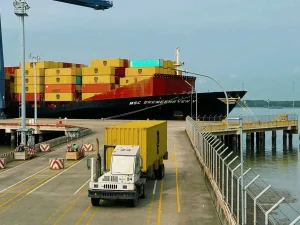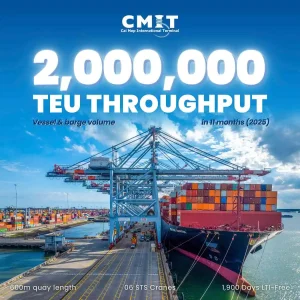Training program objectives
The training program was held on August 22, 2025, at the Auditorium of Saigon Port Joint Stock Company (Saigon Port) with the participation of the port’s leadership and key management officers. This occasion not only enabled each participant to acquire knowledge but also to engage in hands-on experiences, exchange insights and strengthen bonds with colleagues, thereby fostering a spirit of transformation throughout the entire Saigon Port system.
Leadership 2025 – Topic 3 “Techniques for managing personality styles” not only provides additional knowledge but, more importantly, pursues the core objective of enabling participants to identify, understand and manage their own working styles. Accordingly, the art of leadership does not lie in imposing methods based on personal preference but rather in selecting approaches that align with the needs of employees so as to unlock their full potential.
This subject also represents a logical continuation of the previous two sessions: if, at the initial stage, leaders were trained in self-awareness and subsequently equipped with team-leading skills, the learning journey has now advanced to a higher level – the ability to adapt. For Saigon Port, this is not merely an individual voyage but rather the foundation for building a leadership team that is bravery, cohesive and fully capable of leading the organization through the challenges of the maritime industry in this new era.
Key contents
Identifying the four working styles: Analytical – Driver – Amiable – Expressive: Participants will explore the characteristics of each style, ranging from patterns of communication and task execution to responses under pressure. Such identification is particularly critical in the operational environment of Saigon Port, where each department, whether ship dispatcher, operations, administration or logistics, embodies distinct personalities and approaches to handling their duties.
Understanding the strengths and weaknesses of each style: Every style carries its own value, whether it is the Analytical’s attention to detail, the Driver’s decisiveness, the Amiable’s ability to foster cohesion or the Expressive’s capacity to inspire. However, each style also contains inherent limitations that may create challenges in management. By recognizing both the strengths and the weaknesses, Saigon Port leaders can harness the full potential of their workforce while simultaneously minimizing conflicts and operational errors in coordination.
Practicing management and adaptive skills: This training session provides specific techniques for leaders to adjust their working approaches in accordance with different personality types. Such adaptability is an essential competency to sustain efficiency and synchronicity within the port environment, which is prompt and pressured.
Self-adjustment to enable others to work more effectively: The final focus of this program lies in the ability to reflect and adapt. Leaders should not merely ‘demand’ change from employees but must also proactively transform themselves to become more approachable, more collaborative and a dependable anchor for the company. This is a decisive factor in cultivating a harmonious working culture, fostering unity and teamwork – elements that are vital in the unique operational environment of Saigon Port.
Practical applications
Enhancing management effectiveness through proper interaction with employees: By understanding the differences in working styles, leaders can select communication and management approaches tailored to each individual. This enables operations across port departments, from ship dispatcher and operations to logistics and administration, to run smoothly, minimize errors and improve productivity.
Building a harmonious team, reducing conflicts and strengthening cohesion: Recognizing and respecting differences in personality makes the workplace more open and collaborative. At Saigon Port, where multiple departments must coordinate seamlessly under high operational pressure, such harmony is the key to sustaining team spirit and ensuring the successful accomplishment of shared missions.
Enhancing personal leadership capacity by self-adjustment and inspiration: Leaders should not only demand change from subordinates but must also be willing to adjust themselves in order to create conditions for others to exert. This proactive transformation not only makes leaders more flexible and balanced but also spreads inspiration and builds trust within the team, guiding the company toward the sustainable development goals of Saigon Port.
Some pictures at the training course:
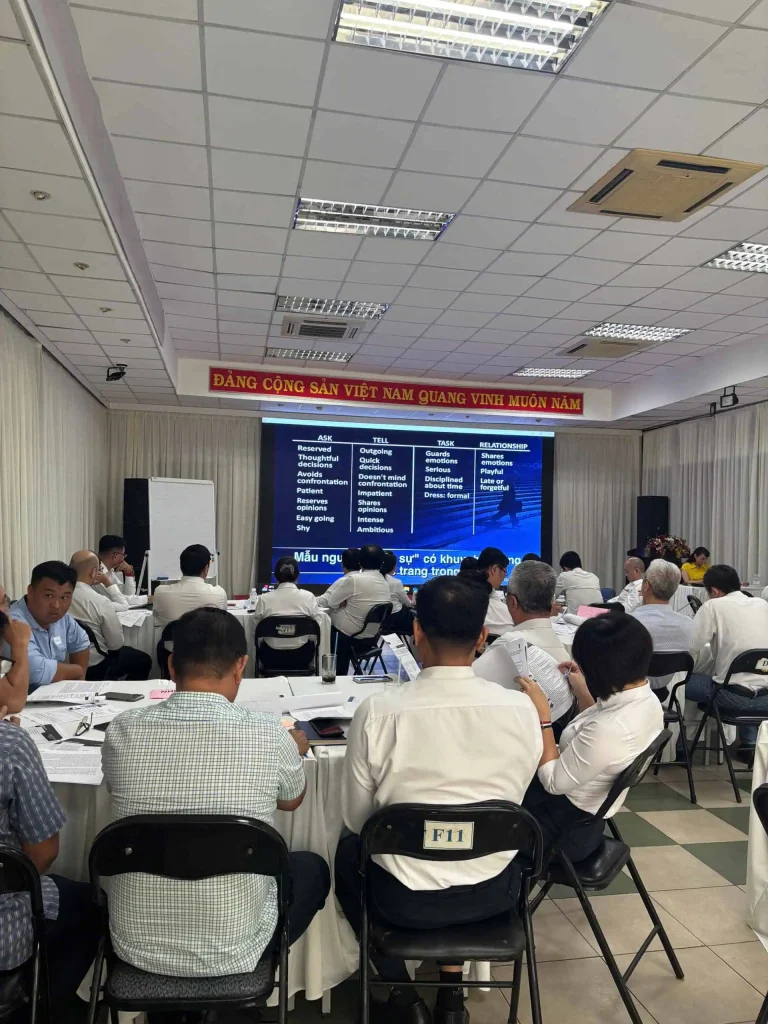
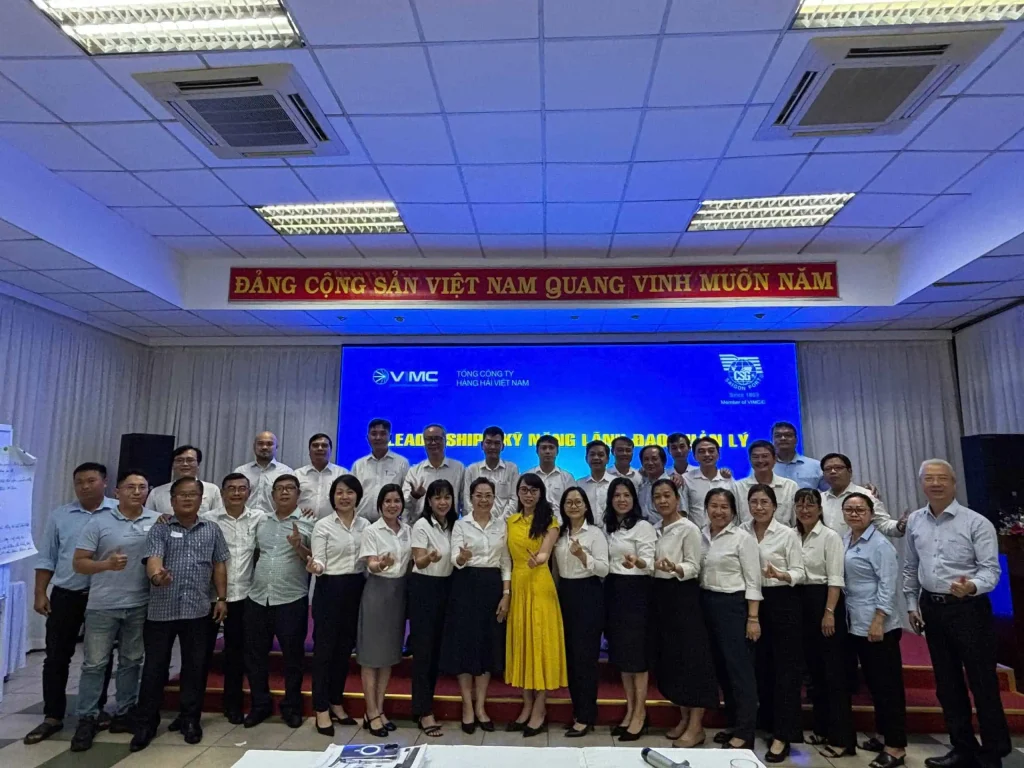
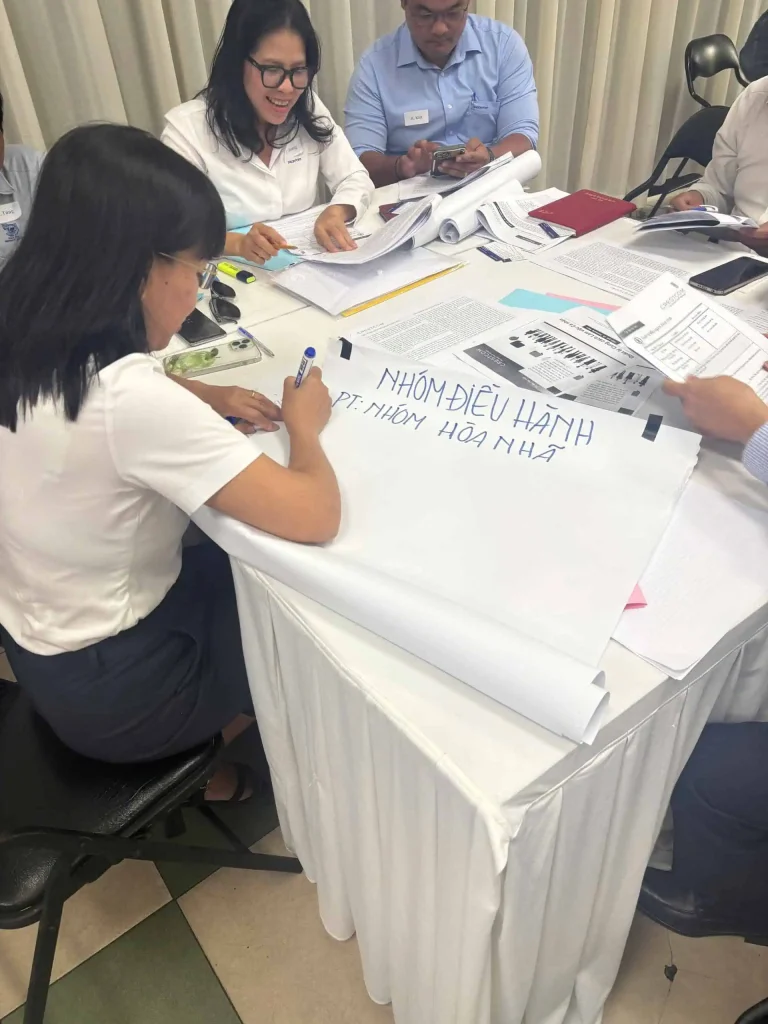
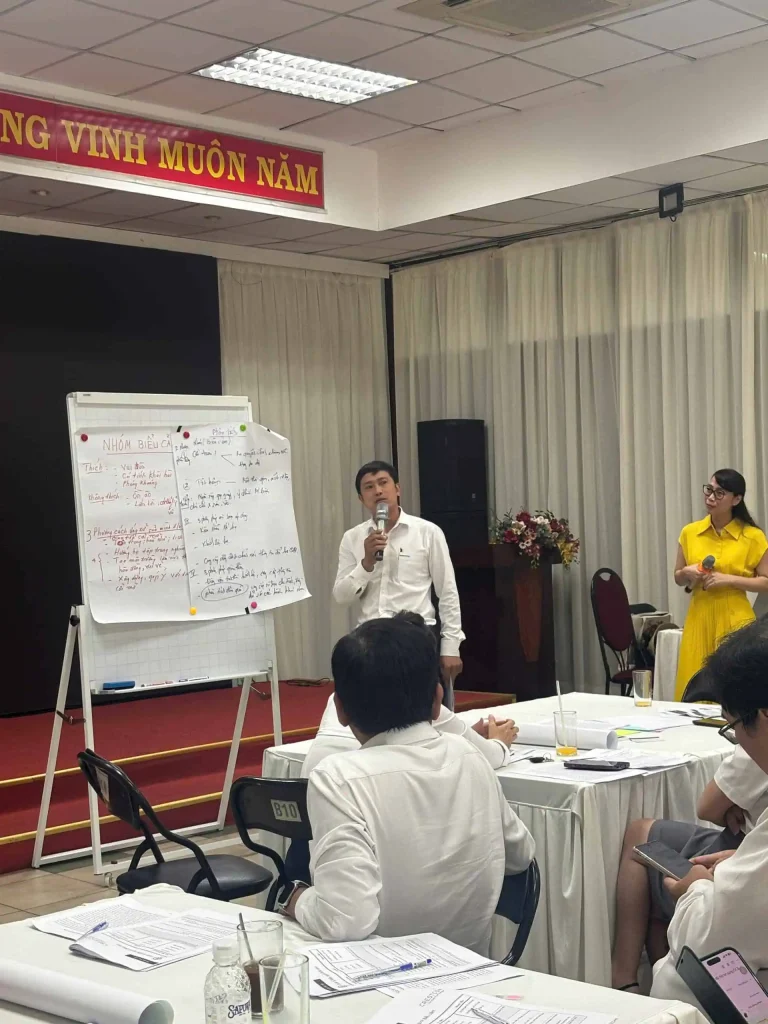
Thai Vuong Nhi

